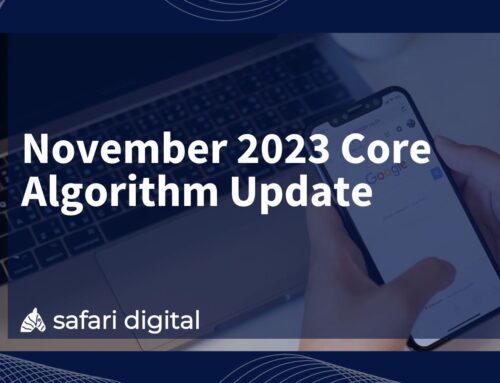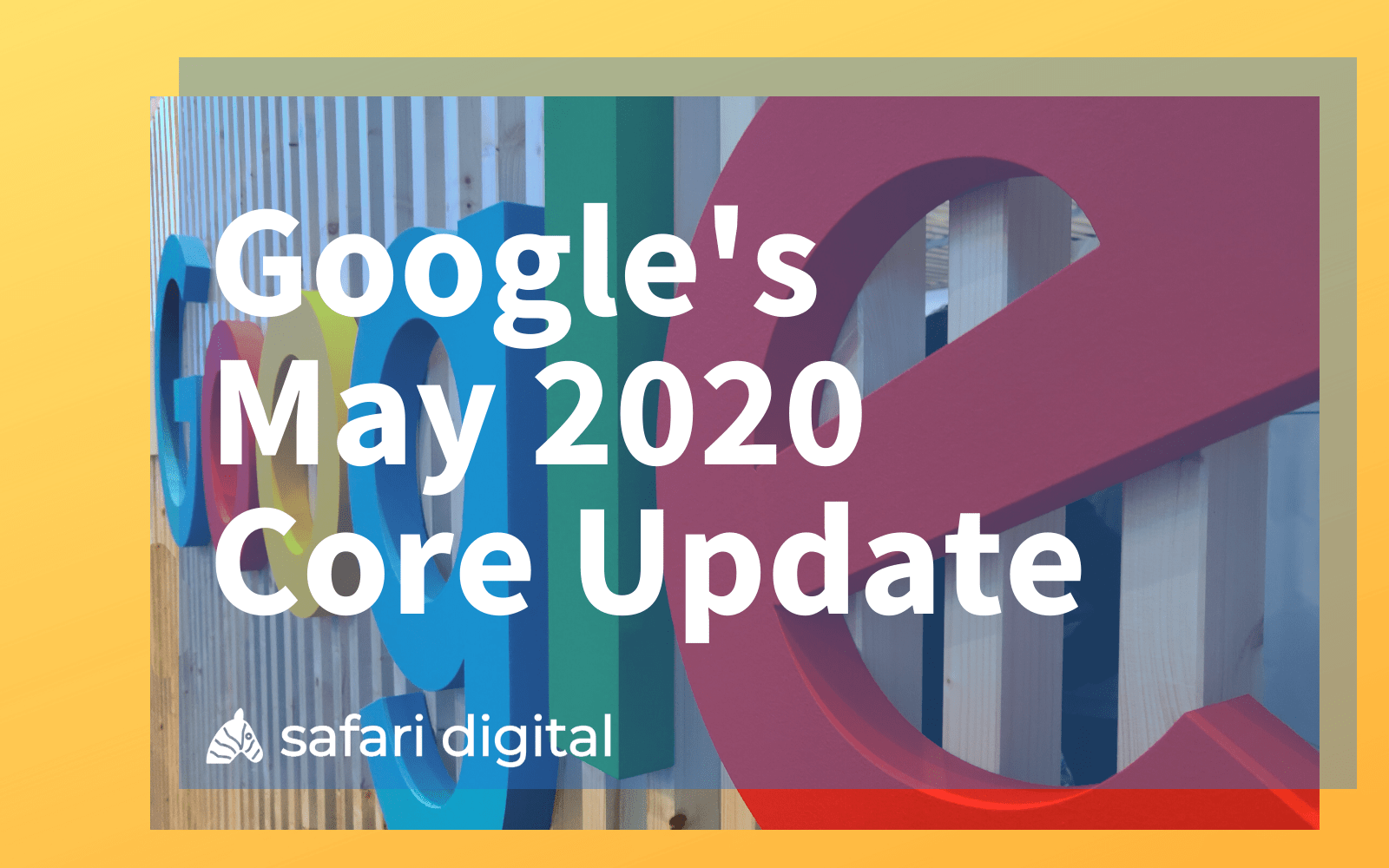
On the afternoon of May 4th, Google’s SearchLiason twitter account announced the rollout of a broad core update named the “May 2020 Core Update“. With broad core updates typically released several times per year, this Goole is expecting this May core update to take about one to two weeks to roll out fully.
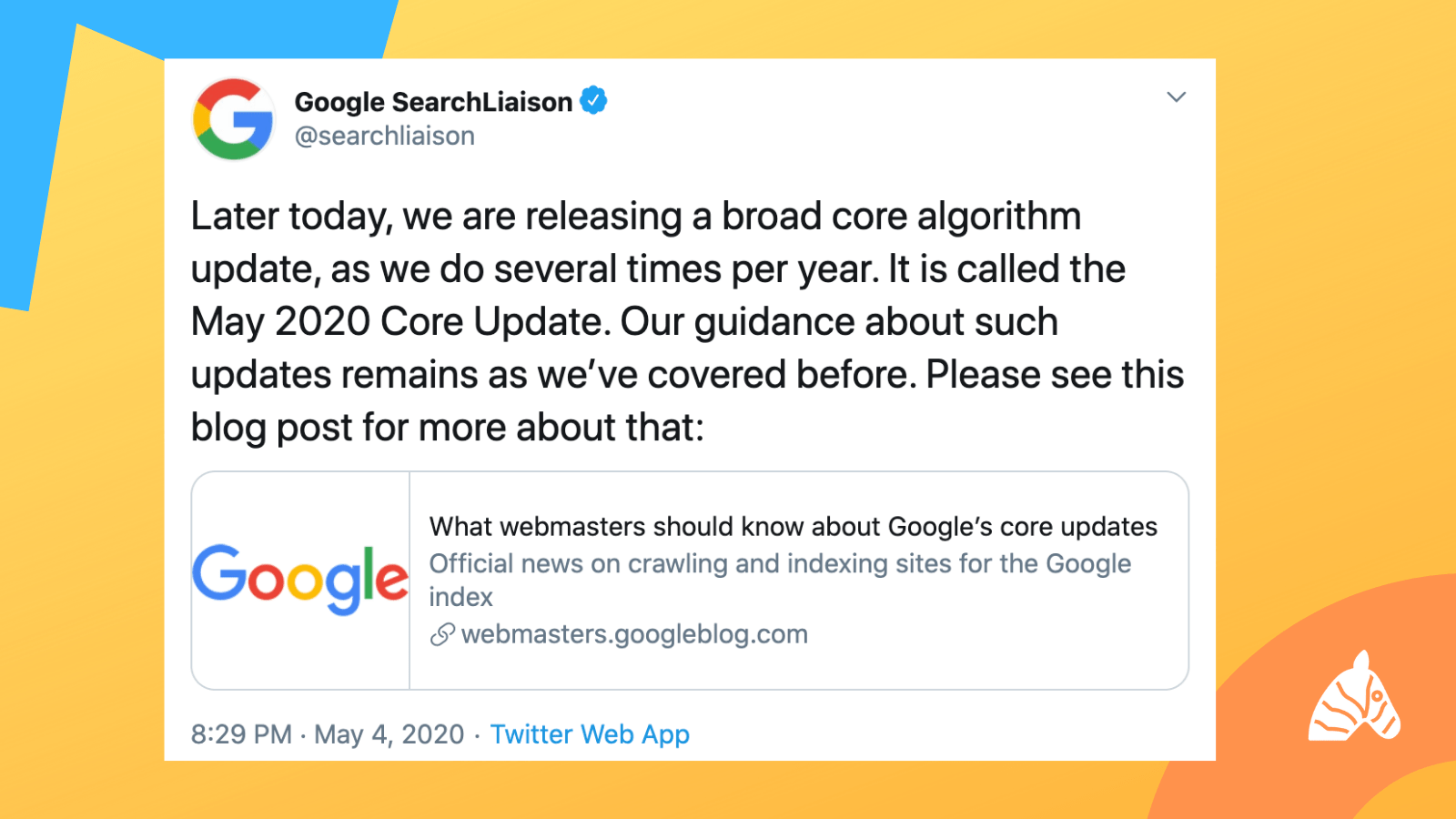
While we’re only a few days in, we’ve seen some significant changes in search engine results that indicate the update to very big and very broad. Whether this is related to the new update or not, we’re still figuring that out. Furthermore, Google makes updates to its algorithm all the time – when they make an announcement via twitter, it’s generally expected to be pretty heavy.
What We Know So Far
We know that the Google May 2020 Core Update started to roll out around 3:50 pm EST on Monday, the 4th of May. As is the way with all broad core updates, the update is global and is not specific to any region, language, or category of websites or businesses. Google has gotten into the habit of making and announcing these broad core updates every few months.
Speculation has concurred that the update may have something to do with the current global pandemic. Given we are in the midst of an international lockdown with the Coronavirus, it would not be all that far-fetched for Google somehow to integrate this into their latest broad core update.
According to Search Engine Journal, their current analysis indicates that there is a partial list of the areas that have been affected by the Google May 2020 Core Update. This includes:
• Local Search Businesses
• Health-Related Websites
• Rolling out Worldwide
• Multiple Languages Simultaneously
We know that broad core updates are designed to influence notable shifts within search engine results. We understand that these updates are somewhat of a big deal and will address a number of ranking factors – that’s why Google announces these updates, rather than letting them slide on by without warning.
According to SEMrush and their research into the volatility of the update, the most influenced industries seemed to be travel, real estate, health, pets & animals, and people & society. These findings were observed across both desktop and mobile searches.
However, given the current state of the world with Covid-19, it’s really difficult to decipher whether websites may experience traffic or ranking drops because of the pandemic or the new broad core update. Either way, it seems there are plenty of people experiencing some significant changes in search.
Despite many in the SEO community complaining of the update’s brutality, our early analysis shows some of our sites experiencing positive effects from the May 2020 update. Below are two websites pre and post the core update on May 4th, one week apart on the same day. This data is not in any way definitive but does show movement based on the limited data that is currently available.
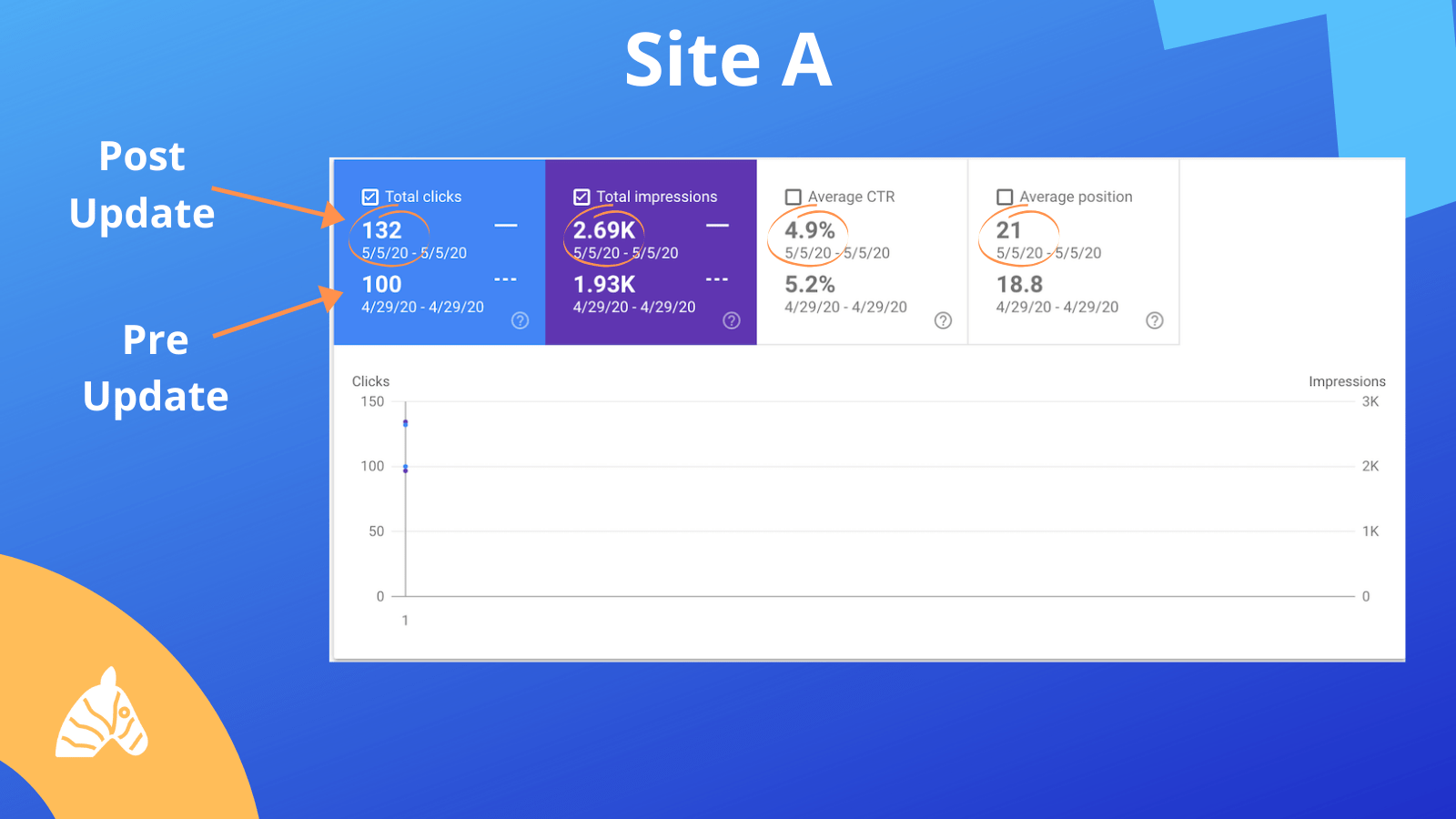
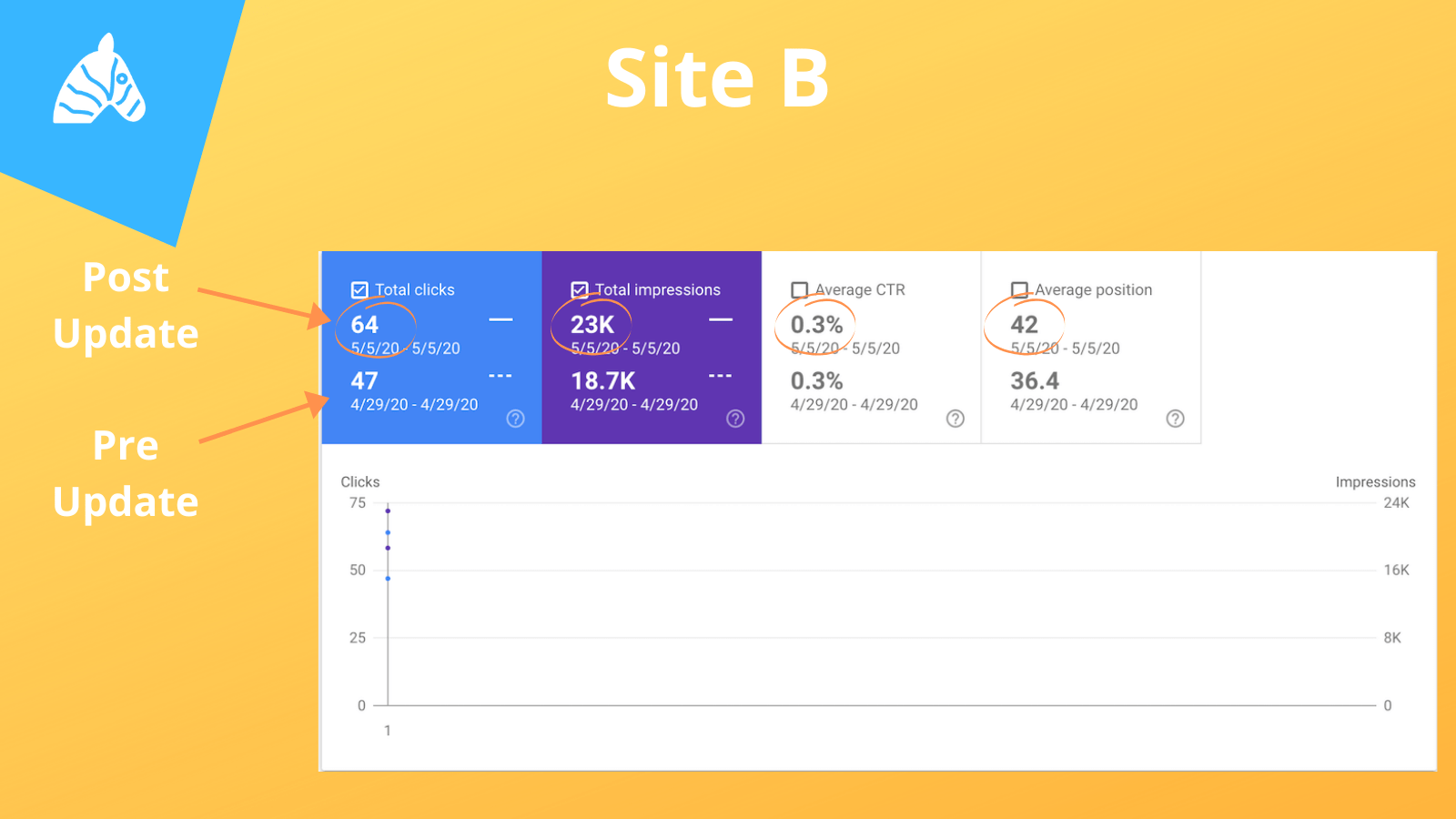
Addressing the Google May 2020 Core Update
Google’s guidelines on how to deal with the core updates remain unchanged. In essence, Google understands that broad core updates may heavily impact websites; however, it’s not always down to a single thing a site is or isn’t doing.
Google’s main mission is to “to organise the world’s information and make it universally accessible and useful.” Since it was first founded, Google has heavily focused on developing its property algorithms to further increase the efficiency and effectiveness in organising information online.
If you’ve experienced a negative turn following Google’s May 2020 core update, it’s not necessarily what your website has done to decrease your traffic or rankings. Experiencing negative impacts from this update does not necessarily mean you’ve been awarded a violation or penalty; it might just be that another site is doing something better than yours.
Google’s May 2020 Core Update has been designed to improve how the algorithm analyses content and will reward those with valuable and high-quality material. Broad core updates, in general, have the potential to bring pages that were previously under-rewarded to now outrank their competition.
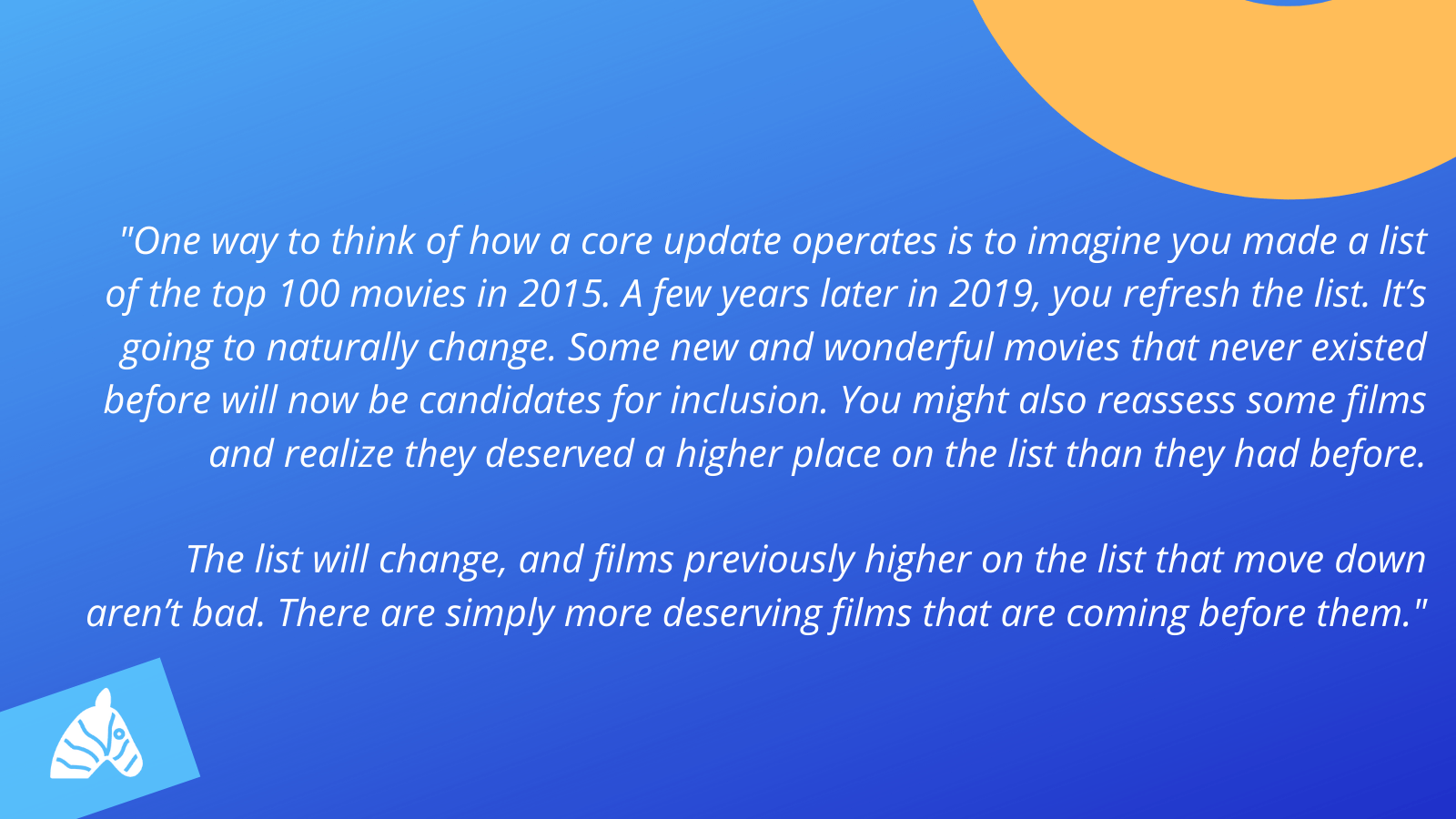
The only way to really address broad core updates is to try and improve your content and website. If you can implement techniques to ensure you are helping Google to achieve their mission, you’re moving in the right direction. Furthermore, if you can provide any additional qualified help, support, essential service during the pandemic, make sure it’s well known. Whether this update is relevant to the current climate is still being speculated; however, it really can’t hurt to put out essential and helpful information during Covid-19.
Finally, if your site is experiencing any adverse effects, don’t take it personally. And don’t blame Google – they’re just trying to improve their algorithm. All you can do is find ways to make your site more insightful, helpful, and of high-quality. If your site is experiencing positive affects from the Google core update, there’s a reason your site is being rewarded; keep up the good work!
“We confirm broad core updates because they typically produce some widely notable effects. Some sites may note drops or gains during them. We know those with sites that experience drops will be looking for a fix, and we want to ensure they don’t try to fix the wrong things. Moreover, there might not be anything to fix at all.”
Final Thoughts
Now is the time to analyse whether your content is high-quality, useful, authoritative and relevant. If you notice any changes to your site following this update, keep a close eye on your stats and make use of it by improving your material.
Google’s broad core updates tend to take a couple of weeks to roll out and stabilise fully. Don’t do anything crazy or irrational to your site – wait a few weeks until making any significant changes to your website. Unless you need to go over a manual action or something that directly violates Google’s Webmaster Guidelines, ride the wave out and just keep an eye on your traffic and rankings. In a few weeks’ time, you’ll have a much clearer idea of what you need to do and how to go about it.
If your website traffic has decreased notably since the beginning of the update, it may be time to speak with an SEO consultant who can diagnose potential issues and provide guidance with getting your website back on track.
History of Recent Google Algorithm Updates



